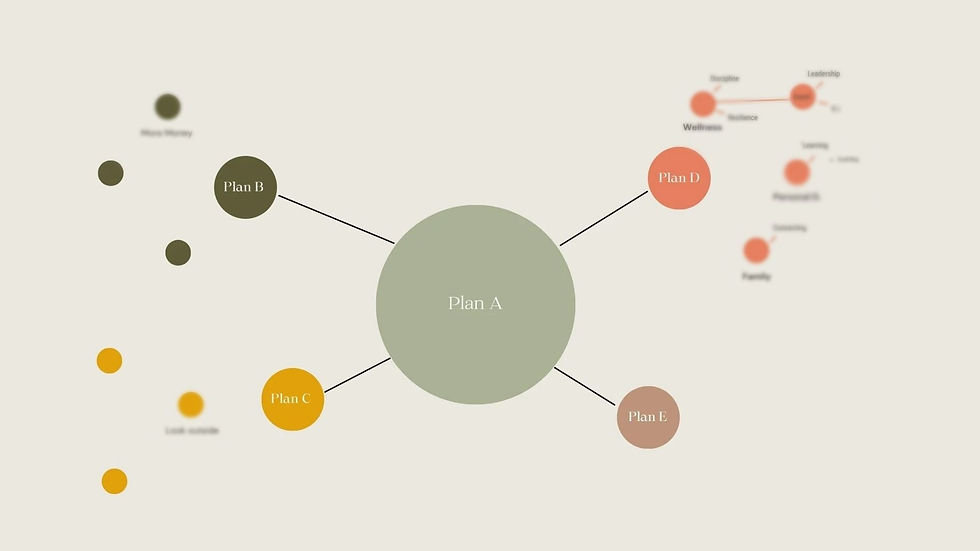Trust Again
- simonavaglieco
- Sep 16, 2020
- 4 min read
Updated: Mar 18, 2022

In ... I trust.
Could you fill in the gaps? Probably you will find it difficult.
If you have been following the news recently, you probably noticed that trust is a scarce commodity. The COVID crisis has cemented our mistrust for governments and politicians. Even science has somehow shown itself not worthy of our respect.
Still, trust permeates every aspect of our life. We have managed over time to regulate interactions with laws and contracts but no matter what, some relations couldn't exist unless parties tacitly agree to trust each other. Take, for example, the relationship between a coach and a client or a doctor and a patient. You can fill out as many disclaimer forms as you want; if the trust is not mutual, there is no chance of creating a successful partnership.
Trust might feel instinctive, but if we dig deeper, we can identify a few traits. Authenticity - to be true to oneself, having strong values and live by them," walk the talk"; Logic - be knowledgeable professionally and believe in your ideas: Empathy - the ability to understand others and have their interest at heart. (Frances X. Frei, Anne Morriss, Begin with Trust, HBR, 2020). I would add to list having a Cause - a bigger goal that transcends a personal interest.
If you think about a person that you trust, they probably tick all the boxes. Otherwise, you will never put yourself in somebody else's hands. When we trust somebody, we shift power away from us. We are more forgiving and somewhat blind. Think of all the efforts companies and politicians make so we can continue to believe in them. They know that once we create that bond, it can last forever unless they do something terrible and betray us.
If trust is such a strong drive, what happens when we don't trust ourselves? Meet Johanna
Johanna's story
Johanna, a respected partner in an advertising agency, was chosen to fill in the role of the senior partner who was temporarily suspended. Johanna initially was sceptical. She was not prepared for the role, but she went along anyway as she had agreed it would only be temporary.
In the effort to prove herself worthy of the trust of her colleagues, and eager to learn, she actively listened. She also was rather open about her lack of expertise. The other partners responded so positively to her openness and enthusiasm that eventually, she was offered the role permanently.
The promotion gave Johanna a welcomed boost in her self-confidence: it showed that she had the respect and the support of her fellow partners. Somehow it didn't fill that void. Johanna still felt a bit like a cheat. In the now consolidated position of power, she thought she had to show herself and the others she was in control. Instead of working on her wobble, she started to retreat, delegate more and put a system in place so that her authority wouldn't be questioned. She stopped sharing and listening, losing eventually, the sympathies of her staunch supporters until she was removed with the consensus of those who had initially promoted her.
Johanna's story shows that authenticity and empathy generates much respect. Unsurprisingly lack of expertise - Logic - doesn't affect the perception of competency: we are well aware that it's possible "to learn on the job" and willingness to do so are in fact admirable qualities. If Johanna had worked on those skills where she lacked confidence, she probably would have deepened that initial burst of self-confidence. She wouldn't have had to resort to authority to protect her position because she could draw from the consensus she was already enjoying.
When it comes to creating meaningful connections, it is risky to mask our unresolved issues mainly because they make us feel vulnerable. Even if you do our best to hide them, they will eventually surface. Because trust is instinctive, any discrepancy sets off all our alarm bells and ultimately affect our relationships.
After all, if we don't believe in ourselves, how can we expect others to trust us?
Identify your inner saboteur.
The first step would be to identify the wobble. Say, for example, we feel often overlooked, maybe it could be helpful to check if - aside from having a good grasp of our subject matter - we can communicate in an impactful way. High standards are what drives us? Maybe we should work on being more accepting of our and others' weaknesses. If like Johanna, we feel a bit like an imposter, it is high time we reconnect to our deep sense of self-confidence.
One way to identify our inner saboteur is learning from feedback: be that the "end of year review" but also daily "between the lines" feedback from our colleagues, clients and friends. Our gremlins affect us not only in our professional life but also in the personal sphere.
Hiring a coach could prove to be an excellent investment. When we are too involved in our narrative, we may find it challenging to identify the missing piece. Family and friends' opinions might, at times, feel too personal or biased. A coach is that neutral external pair of eyes can support us in separating emotions from facts so that we can better identify our vulnerabilities. With newfound awareness, we can then progress to filling whatever gap we have spotted so that we can work towards a more rounded picture. But then, once again, this process can only work in a mutual, honest relationship. After all, it all comes down to trust.



Comments